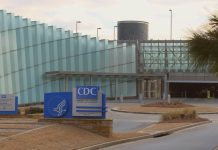
EVANSVILLE, Ind., Nov. 27 (UPI) — A national group is urging retailers, shippers and packers to consider composting the many tons of potentially contaminated romaine lettuce recalled Friday rather than sending it to landfills.
“We don’t do this for every recall,” said Frank Franciosi, the executive director of the U.S. Composting Council. “But we’re seeing more and more of this with romaine lettuce and we hate to see all that organic material in landfills.”
The Food and Drug Administration and Centers for Disease Control and Prevention have instructed people to discard all romaine lettuce grown around Salinas, Calif., after tracing an E. coli outbreak that sickened 67 people to that area.
It is the fourth E. coli outbreak linked to romaine lettuce since early 2018.
“We don’t want all this in a landfill,” Franciosi said. “It’s a valuable organic product.”
When plant material decomposes in landfills, it releases large amounts of methane, a highly potent greenhouse gas, Franciosi said. However, composting facilities are able to eliminate such emissions by mixing the leafy greens with a carbon source such as dried leaves.
During compositing, the material heats naturally to temperatures high enough to kill pathogens, like E. coli. The end result is a natural compost material that can be used in gardens in place of fertilizer, Mathews said.
The current recall comprises many tons of romaine that will be pulled from home refrigerators, store shelves, shipping containers and packing facilities.
“It’s stretching our daily processing capacity,” said Patrick Mathews, the general manager and chief administrative officer for the Salinas Valley Solid Waste Authority. “It’s coming in by the truckloads.”
The recalled romaine started to arrive at the Salinas facility Monday, Mathews said. That day, he said, about seven trucks came, each carrying between 6 and 8 tons of lettuce. Matthews did not immediately know how much arrived Tuesday.
The Salinas Valley Solid Waste Authority is diverting as much romaine as possible to either composting or wastewater facilities, Mathews said. Wastewater facilities utilize the lettuce to produce methane gas, which they then use to power the facility.
But the romaine entering the Salinas facilities is only a small portion of what was recalled, Mathews added. It is mainly left-over material that was awaiting shipment from production centers.
“Most of what is recalled already has been shipped,” he said. “This stuff doesn’t sit for long.”
The 67 people sickened in this latest E. coli outbreak tied to romaine lettuce were in 19 states, according to the CDC. Of that number, 39 have been hospitalized, some with kidney failure. No deaths have been reported in this latest outbreak.
In the recall announcement, the CDC instructed anyone with romaine lettuce from Salinas, Calif., to throw it out and wash and sanitize the area in which it was kept. Likewise, if it is unclear where the romaine was grown, it should be tossed.
More than 350 people have been sickened by E. coli outbreaks linked to romaine lettuce grown in California and Arizona since 2018. Five have died.
The FDA has yet to determine why romaine grown in distinct regions continues becoming contaminated. The agency this month began testing romaine for E. coli and salmonella in both states in hopes of finding a cause.
“This assignment is intended to help the FDA, the CDC and state public health agencies to identify sources of contamination and factors that may be contributing to them, so that they can be addressed,” the FDA said in a statement.





